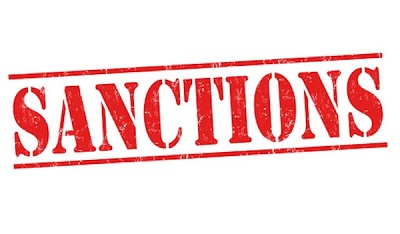The economic siege imposed by some governments on many of the world’s states directly hinders the achievement of economic and social development of these states’ peoples. Those who impose the unilateral sanctions are the states which enjoy an economic, political and military influence which makes them think that they can punish the states which oppose their policies of imposing hegemony on the world under the pretexts of defending human rights or combating terrorism.
The General Assembly should set active mechanisms for putting an end to these hostile practices and to the policies of siege and the unilateral economic measures which violate the international law. The states which impose illegal economic sanctions are responsible for the economic losses inflicted on the states on which they impose such illegal siege.
The US administration’s bid to re-impose sanctions on Iran’s vital oil and financial sectors is in line with Washington’s policies to undermine peace and security in the Middle East. The new wave of Washington’s sanctions reflects the US failure to deliver on its obligations under the Joint Comprehensive Plan of Action – the nuclear agreement reached between Iran and the P5+1 group of countries in 2015. The United States acts in a way that contravenes the UN Charter, international law and the multilateral trade system and magnifies the humanitarian suffering of nations hit by these sanctions. The new package of sanctions will only make Iran more determined to abort the US unethical policies.
The US policies and decisions are facing practical opposition across the world. Most countries except few ones have started opposing the US behavior, particularly over the re-imposition of unilateral sanctions. The recent destructive move by the US to impose a new wave of sanctions on Iran should be immediately reviewed. If Washington, as it claims, is indeed interested in negotiations with Tehran, the policy of sanctions pressure aimed at diminishing Iran’s economic and defense potential as well as undermining the internal political situation there must be revised immediately. America’s goal with sanctions is to cripple and hold back Iran’s economy, but the outcome is that the push toward self-sufficiency has expanded in the country.
Benjamin Netanyahu has welcomed US President Donald Trump’s decision to re-impose all sanctions lifted under the 2015 nuclear accord on Iran. Netanyahu cried foul, saying he had been calling for “renewed sanctions” against Iran “for years. Back in May, Netanyahu hailed what he called Trump’s “bold” decision to pull the US out of the Joint Comprehensive Plan of Action (JCPOA), as the nuclear deal is officially known.
France, Germany, Britain, and the European Union condemned Washington’s anti-Iran sanctions, vowing to protect European firms doing business with Tehran. In a joint statement, EU foreign policy chief Federica Mogherini and the E3 ministers of foreign affairs and finance expressed “deep regret” over the US re-imposition of its unilateral sanctions on Iran following a May decision by President Donald Trump to withdraw from the Iran nuclear deal. The statement described the 2015 agreement as “crucial for the security of Europe, the region and the entire world”, adding that it is Europe’s “aim to protect European economic operators engaged in legitimate business with Iran.”
It’s strange how some of the delegations from permanent members of the Security Council insist on confusing humanitarian and political issues, as these delegations continue to obstruct humanitarian efforts in Syria, Iran and other countries. The unilateral coercive economic sanctions imposed by the US cause suffering for the peoples of the countries imposed on them. We heard that the US and its allies have been shedding crocodile tears over the fact that there are some 10 million Syrians require humanitarian assistance, but at the same time they continue to impose unilateral coercive procedures against 23 million Syrians.
It is illogical for those states to maintain their politicized attitude towards Syria and Iran and keep overstepping their mandate, given the fact that top Western officials have confessed to their governments’ involvement in funding and sponsoring terrorists in Syria.
Economic sanctions, and attempts to destabilize states to weaken and topple governments are main causes for many humanitarian crises and forced displacement witnessed in some states.
K.Q.

